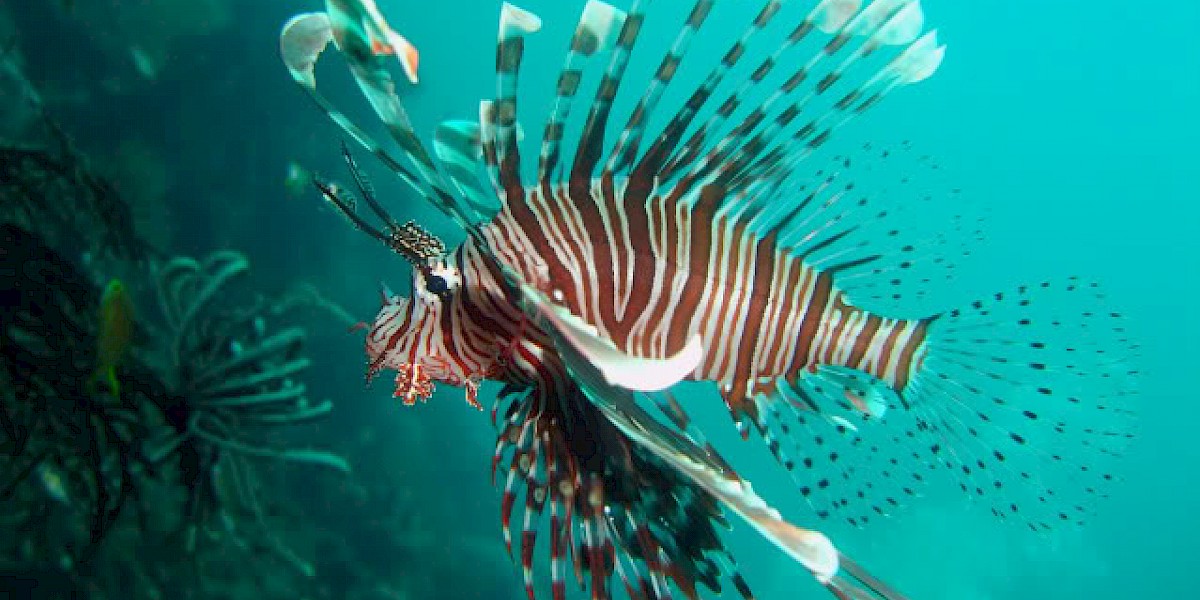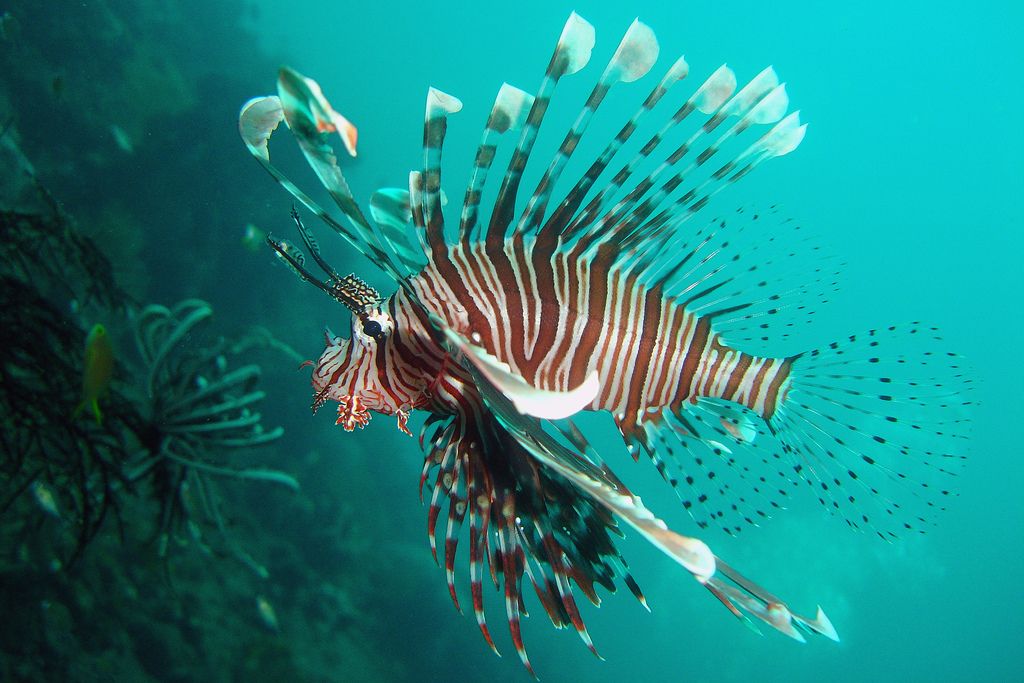
THE LIONFISH - DAZZLING AND DANGEROUS
The beautiful Lionfish is a danger to the fragile ecosystem of the Mesoamerican Barrier Reef.

Lionfish are indigenous to the tropical Pacific and Indian Ocean, but are invading the reef system here in the Caribbean ocean. Before January of 2009 the Lionfish had not been seen in the Riviera Maya and the crystal waters of the Caribbean Sea. Unfortunately, they are now numerous and have become a serious threat to the natural balance of the coral reef ecosystem.
There is some debate as to how the Lionfish entered this region; some blame it on a hurricane that damaged an aquarium in Florida, releasing many Lionfish into the Atlantic Ocean where they have no natural predators. The invasion is also blamed on aquarium owners who, tired of the exotic pet, dumped them in the ocean. Lionfish like to hang around crevices and caves and live around reef systems where they can feed on smaller fish. They are stunning looking fish with long spiky fins, which makes them a favorite for displaying in aquariums.
The Lionfish is an impressive looking creature, unlike anything else seen in these waters; a flutter of dazzling long spikes that are as dangerous as they are graceful in their appearance. These beautiful spikes are venom filled. The venom of the Lionfish, while not usually fatal to humans, is very toxic. To treat a Lionfish sting: submerge the affected are into the hottest water possible and seek immediate professional medical attention
There are no natural predators in the Atlantic to control the growing number of Lionfish numbers; therefore, it is reproducing at an alarming rate. The Lionfish can lay up to 25,000 eggs per spawning and usually have a spawning every four days, year round. A female lionfish can lay around 2 million eggs a year. This presents a real problem to our reef system as Lionfish feed on smaller fish that are part of the necessary balance for a healthy reef system.
Divers are working to teach sharks and large grouper to eat Lionfish. Sharks do not recognize Lionfish as food but will eat them when they are offered to them by divers. Local divers catch Lionfish and feed them to sharks, hoping to give the sharks a taste for Lionfish and encourage them hunt them on their own.
http://www.neatorama.com/2011/04/08/training-sharks-to-eat/
http://theseamonster.net/2011/04/teaching-sharks-to-eat-lionfish/
Humans can consume Lionfish if they are properly cleaned. There are and more Lionfish recipes surfacing since divers are being encouraged to catch them and are given incentives to hunt them.
http://www.lionfishhunter.com/Lionfish%20Recipes.html
http://www.reef.org/catalog/cookbook
In parts of the Mayan Riviera there are frequent Lionfish catching contests and other incentives for divers to catch as many as Lionfish as possible. Hunting Lionfish without proper knowledge is not recommended!! They are extremely poisonous and local environmental agencies ask that tourists not try to catch them, but rather, to report them so they can be hunted by experienced divers. If you decide to help in the hunting and hopefully eating of Lionfish please use all of the necessary precautions; only hunt with experienced divers and learn how to properly clean and prepare them before eating!!
Here are some other interesting articles about Lionfish-
This is a great blog post about Lionfish http://www.cancuncanuck.com/2009/11/lionfish-pez-leon-in-quintana-roo.html
This article is about eating and hunting Lionfish- could Lionfish be a good option as a sustainable food source?http://www.washingtonpost.com/wp-dyn/content/article/2010/07/06/AR2010070601003.html
Bon Apetite! (Let's hope they will become a prevalent lunch special around Playa del Carmen! Lionfish ceviche sounds tasty!)

